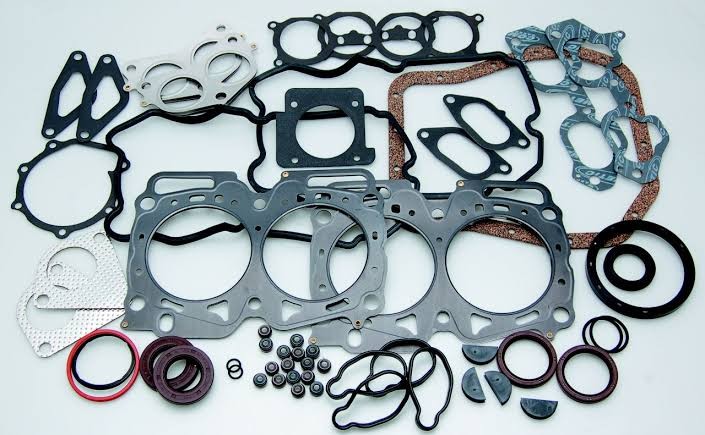Gaskets are mechanical seals designed to prevent leaks between two or more mating surfaces. They act as a barrier, creating a tight and secure seal to contain fluids, gases, and even vibrations within the engine and various automotive systems.
Gaskets - small, inconspicuous components with a mighty role in the automotive world. Have you ever wondered what they are and why they matter? Prepare to embark on a fascinating journey as we delve into the realm of gaskets and explore their importance in keeping our vehicles running smoothly.
From the cylinder head to the exhaust manifold, gaskets play a crucial role in maintaining proper sealing and ensuring optimal performance.
Types of Gaskets and Their Applications:
- Cylinder Head Gaskets: These gaskets seal the gap between the engine block and cylinder head, preventing coolant, oil, and combustion gases from leaking into the cylinders. They are vital for maintaining proper compression and preventing overheating.
- Intake and Exhaust Gaskets: Found between the intake manifold, exhaust manifold, and cylinder head, these gaskets seal the passages for air and exhaust gases. They help optimize engine performance by ensuring efficient airflow and preventing leaks that can impact fuel economy and emissions.
- Valve Cover Gaskets: Positioned between the valve cover and cylinder head, these gaskets prevent oil leaks from the top of the engine. They protect sensitive components, such as camshafts and valve springs, from damage caused by oil seepage.
- Oil Pan Gaskets: Situated between the engine block and the oil pan, these gaskets ensure a tight seal to prevent oil leaks. They help maintain the proper oil level, lubrication, and protection of vital engine components.
Types of Gaskets by Material:
- Metal Gaskets: Constructed from materials such as copper, aluminum, or steel, metal gaskets offer excellent heat resistance and durability. They are commonly used in high-temperature applications, such as exhaust systems or turbochargers.
- Composite Gaskets: Composed of multiple layers of different materials, composite gaskets provide a balance of strength and flexibility. They are often used in engines where sealing requirements are stringent, such as cylinder head gaskets.
- Rubber Gaskets: Made from elastomeric materials like silicone or neoprene, rubber gaskets excel at sealing fluids and preventing leaks. They are commonly used in applications that require resistance to oil, fuel, or coolant, such as valve cover gaskets or oil pan gaskets.
- Paper Gaskets: Typically made from materials like cellulose or fiber, paper gaskets are lightweight and inexpensive. They are commonly used in less demanding sealing applications, such as water pumps or thermostat housings.
The Importance of Gaskets:
Gaskets are the unsung heroes of automotive systems, quietly working behind the scenes to ensure reliable operation. They play a pivotal role in maintaining the integrity of various fluid systems, preventing leaks, and preserving the overall performance and longevity of the engine. Without proper sealing, critical fluids could escape, leading to reduced efficiency, engine damage, and costly repairs.
Signs of a Worn Out Gasket:
- Coolant or Oil Leaks: Noticeable leaks around the engine, particularly around the cylinder head, valve cover, or oil pan, may indicate a failing gasket.
- Overheating Engine: If the engine frequently overheats or experiences sudden temperature spikes, it could be a sign of a compromised cylinder head gasket, which can lead to coolant leakage.
- White Smoke from Exhaust: A failing head gasket can cause coolant to mix with engine oil, resulting in white smoke coming from the exhaust pipe.
- Engine Misfires or Poor Performance: A deteriorating intake manifold gasket can lead to vacuum leaks, affecting air-fuel mixture ratios and causing engine misfires or reduced performance.
- Visible Damage: Physical damage or deterioration of the gasket material, such as cracks, breaks, or brittleness, indicates the need for replacement.
As you embark on your automotive journey, keep a watchful eye on the humble gasket. Its role in maintaining a well-sealed engine should not be underestimated. Regular inspections, prompt repairs, and timely replacement of worn-out gaskets will ensure your vehicle remains at its best, providing you with reliability and performance mile after mile.

Comments (0)
Please login to join the discussion
Be the first to comment on this article!
Share your thoughts and start the discussion